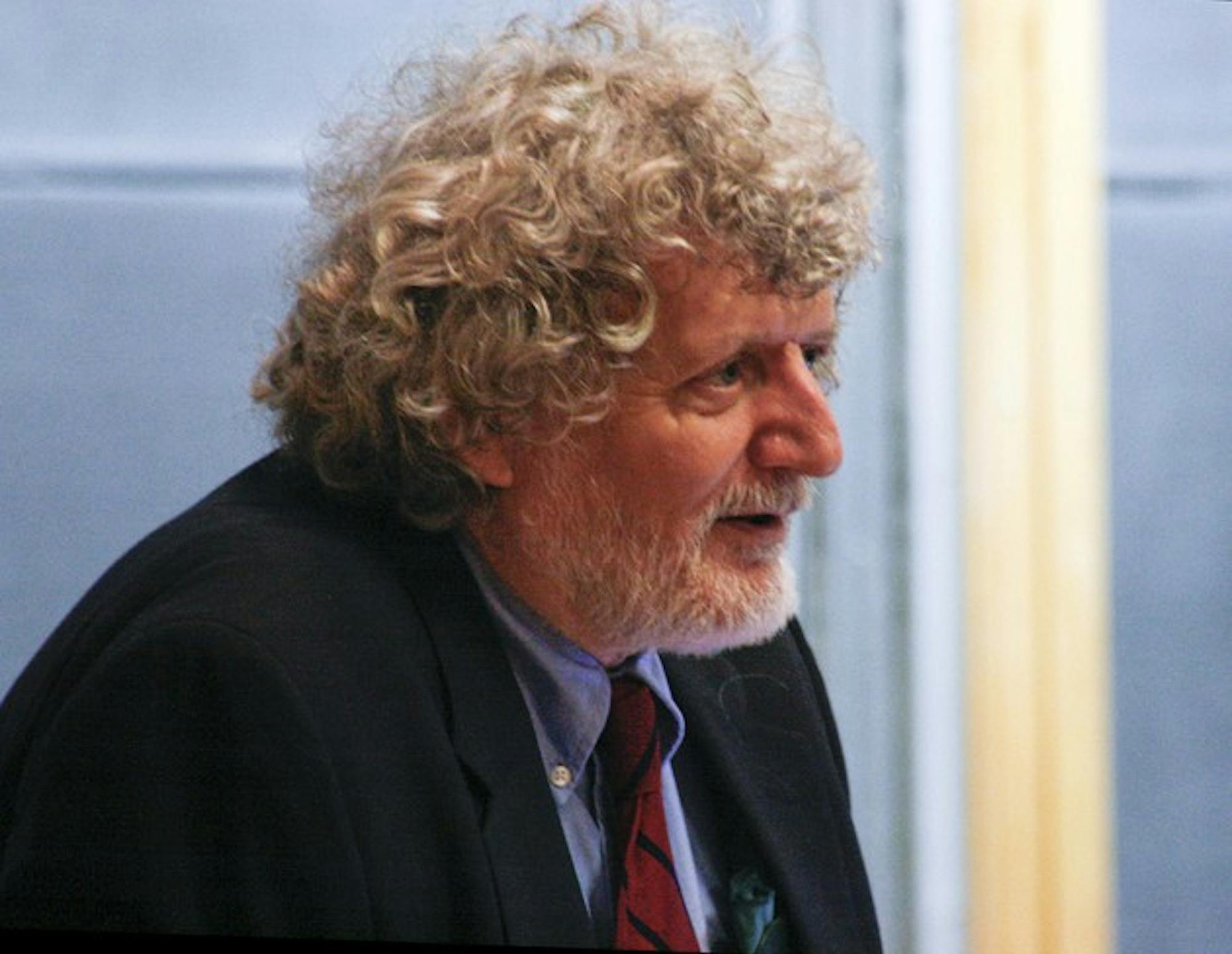"People hear much more about what's going wrong [in Iraq] than about what's going right," Burns said, citing dramatically decreased levels of violence.
This year has brought six of the nine months with the fewest casualties since 2003, he said.
The negative perception of the conflict in Iraq is partially due to Iraqi public opinion polls that show a vast majority see Americans as invaders and want them to leave the country, according to Burns.
These polls, however, are very limited and are conducted in stressful environments, he said.
"Opinion polls in countries like Iraq mean nothing" he said. "If you were to have a serious conversation with most Iraqis, they'd tell you they don't want the Americans to go home, they want them to stay and provide them with security. Iraqis have had enough of killing."
Burns recalled a phone call from Dexter Filkins, a war correspondent for The Times, who told Burns he was sitting in a coffee shop in what used to be the most dangerous area in Baghdad surrounded by locals asking to shake his hand. Burns also said the blast walls in Baghdad, visible reminders of day-to-day violence, were beginning to come down.
"The surge up to now has worked, and the American army has reinvented itself," he said. "The American army in Iraq is the most effective counter-insurgency force the world has ever seen."
Burns also said Americans have to be open-minded when questioning the war and America's invasion of Iraq.
"Is it allowable or wise for the greatest military power on earth to go to war to remove a murdering tyrant whose brutality knew no bounds?" he asked rhetorically, challenging the audience to read reports of human rights violations during the last nine years of Saddam Hussein's regime.
"If they don't curdle your blood, there is no blood in your veins," he added.
Burns, who recently returned from reporting in Afghanistan, said the situation there is a lot less encouraging than that in Iraq.
"The Taliban owns the night, the roads, the villages -- the war might very well be lost," he said. "To turn this around will require more troops and inevitably more casualties."
Responding to an audience question regarding where the additional troops will come from, Burns said that the United States would have to redistribute forces between Afghanistan and Iraq.
"You cannot build up in Afghanistan unless you build down in Iraq," he said.
The war will be costly, both financially and in terms of human lives, Burns added.
"It's the blood not only of Americans but also of Iraqis and Afghanis," he said.
Burns told The Dartmouth that while reporting from Afghanistan from 1996 to 1997, and as The Times Islamic correspondent from 1999 to 2001, he perceived that tensions were building and about to boil over.
"There was a kind of drumbeat that you would have to be deaf and dumb not to hear," he said. "They were coming for us."
Burns said most people do not understand how he can spend most of his life in war-ravaged battle zones.
"People will often ask me, 'Why do you go there?' Well I say that I am very well rewarded," he said. "Not monetarily -- you'll never get rich as a reporter. But there's hardly a day when I don't say 'Thank the Lord for letting me be one of those who chronicle this.'"
Burns has been a reporter for The Times since 1975 and covered assignments in Africa, Asia, Europe and the Middle East. He covered South Africa as apartheid was ending, China during the Cultural Revolution of the 1970s, the break-up of Yugoslavia in the 1990s and, more recently, the war in Iraq. He won two Pulitzer Prizes for his coverage of events in Bosnia and Afghanistan.
Burns is the third and last of this fall's Montgomery Fellows. The theme of the fellowship this year is "America in 2008: Perspectives and Reflections."
Staff writer Marielle Battistoni contributed to the reporting of this article.




